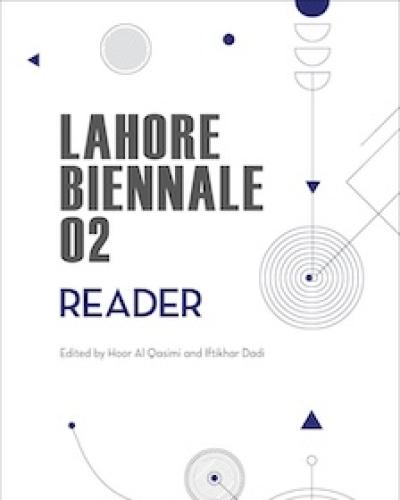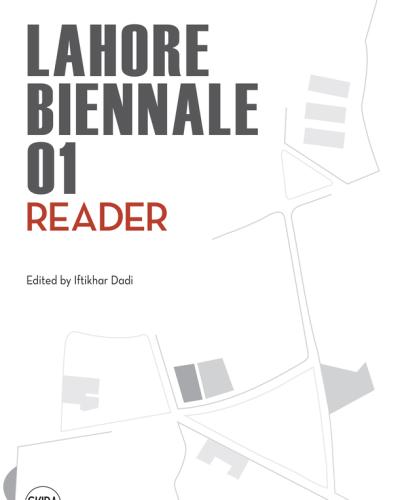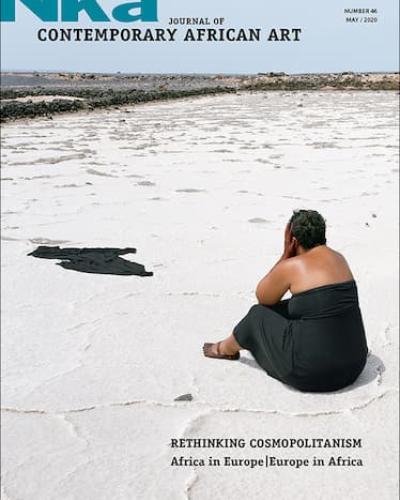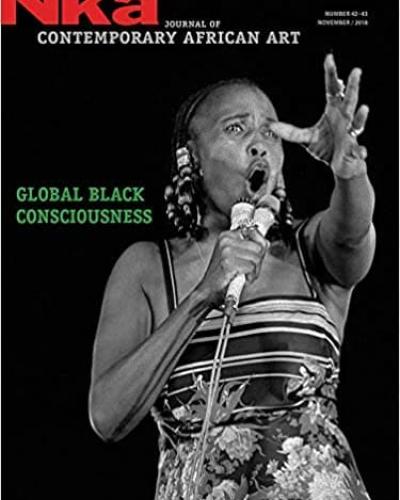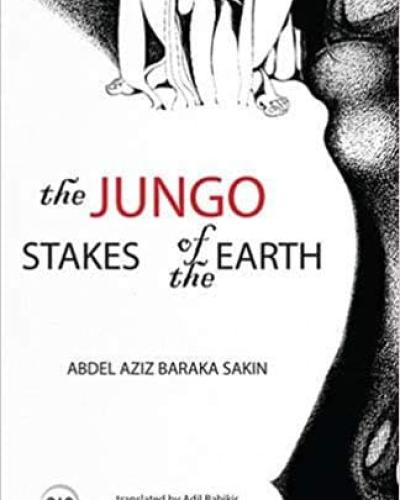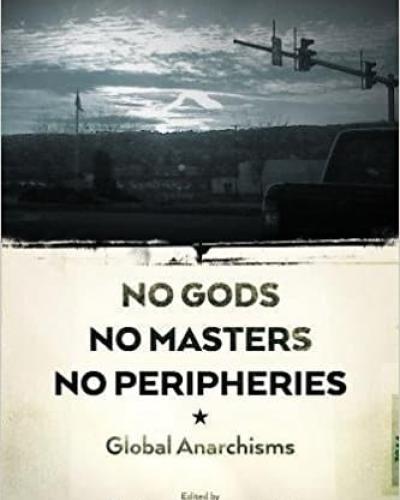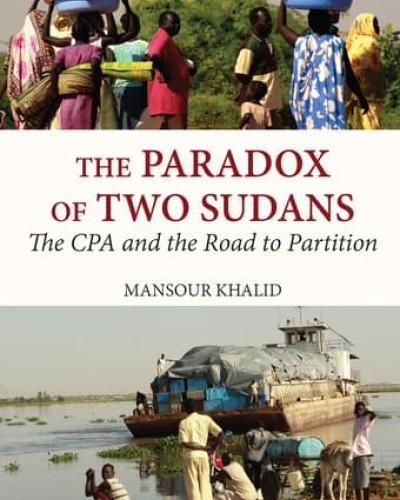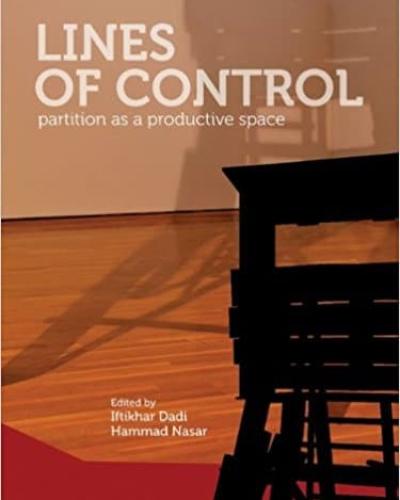The ICM Book Series seeks to galvanize new research by encouraging cross-disciplinary collaborations that advance a relational analysis of modernity sensitive to geographical and historical specificity. The book series will include proceedings of ICM conferences, translations of critical texts previously unavailable in English, and critical interventions on contemporary debates.
Lahore Biennale Reader 02
Hoor Al Qasimi and Iftikhar Dadi, Editors
(Milan: Skira, 2024; Lahore Biennale Foundation and Institute for Comparative Modernities, 2024)
The Lahore Biennale 02 (LB02) was exhibited at multiple sites across Lahore, Pakistan in 2020. Hoor Al Qasimi curated the work of over eighty artists and collectives under the theme of “between the sun and the moon,” emphasizing participation from the Global South and with a stress on artists and works from Africa, Central Asia, West Asia, and their diasporas.
The multifaceted Biennale program included exhibited works, performances, participatory settings, publications, and films. The Academic Forum of LB02 included lectures, workshops, and panel discussions that illuminated the wider infrastructural, cultural, and aesthetic frameworks relevant to the contemporary Global South.
The Lahore Biennale Reader 02 consists of two parts. Part I includes reflections on the Biennale by artists and viewers, images of the sites, and the artworks. Part II includes essays based on presentations at the LB02 Academic Forum convened by Hoor Al Qasimi and Iftikhar Dadi.
Contributors include: Ali Nobil Ahmad, Hoor Al Qasimi, Bahar Behbahani, Iftikhar Dadi, Seema Golestaneh, Salima Hashmi, Samina Iqbal, Maryam Wasif Khan, Naila Mahmood, Chris Moffat, Aamir Mufti, Zohreen Murtaza, Rabia Nadir, Pak Khawateen Painting Club (Saba Khan), Qudsia Rahim, Laila Rahman, Ali Raza, Alex Shams, Devika Singh, and Simon Soon.
Lahore Biennale 01 Reader
Iftikhar Dadi, Editor
(Milan: Skira, 2022; Lahore Biennale Foundation and Institute for Comparative Modernities, 2022)
The Lahore Biennale 01 Reader assembles substantial scholarly and curatorial essays that engage with salient questions of cultural politics in the global South.
The contributions are developed from the program of the first Lahore Biennale (LB01) in 2018, which included works by over 50 artists. LB01 was accompanied with a robust academic forum that brought together local and international scholars, curators, and artists to investigate issues of relevance to contemporary art and society, regionally and globally. The biennale program included a symposium, talks by participating artists, papers by scholars and curators, panel discussions, and workshops.
Organized into thematic sections with a substantial introduction, the Lahore Biennale 01 Reader offers methodological and comparative insights on the contemporary art and culture of the wider region of Asia and Africa.
These in turn are exemplary of the vital issues of cultural politics that the art world and the global South faces today. With contributions by Attiq Ahmed, Esra Akcan, Sean Anderson, Farida Batool, Pamela Corey, Iftikhar Dadi, T. J. Demos, Kaitlin Emmanuel, Gridthiya Gaweewong, Naiza Khan, Sonal Khullar, Mariah Lookman, Saloni Mathur, Srimoyee Mitra, Naeem Mohaiemen, Ijlal Muzaffar, Hira Nabi, Sharmini Pereira, Zarmina Rafi, Qudsia Rahim, Ashish Rajadhyaksha, Aziz Sohail, and Emilia Terracciano. The Lahore Biennale is the flagship event of the Lahore Biennale Foundation.
Rethinking Cosmopolitanism: Africa in Europe, Europe in Africa (Volume 2020, Issue 46)
Issue Editors Salah M. Hassan and Chika Okeke-Agulu
Contributors to this issue reconfigure concepts of art, culture, and politics through the lens of cosmopolitanism. Focusing on the historical and cultural entanglement of Africa and Europe at the intersection of decolonization and modernity, the contributors emphasize the potential of cosmopolitanism to shape possibilities for coexistence and living with difference among all people. Visual and textual essays address the causes and consequences of migration between Africa and Europe; the classification of artistic practices whose roots are not confined to any particular nation; and mid-twentieth-century debates on decolonization, modernity/modernism, and identity through a cosmopolitan viewpoint. Examining cosmopolitanism through theoretical perspectives as well as visual art practices, contributors to this heavily illustrated issue fill in the gaps in contemporary understandings of cultural and political dynamics between Africa and Europe.
Global Black Consciousness: A Special Edition of Nka (Volume 2018, Issue 42-43)
Issue editors Margo Natalie Crawford and Salah M. Hassan
Contributors to this special issue offer a critical and nuanced analysis of global black consciousness as both a citing of diasporic flows and a grounded site of decolonizing movement. In doing so, they open up and complicate the key paradigms that have shaped the vibrant work on theories and cultural productions of the African diaspora. Divided into three focus sections, the issue pushes the abundant current scholarship on the African diaspora to another dimension—the edge where we think about both the problem and promise of mobilizing “blackness” as a unifying concept.
To subscribe to Nka, visit the journal's website at Duke University Press.
Van-Leo: The Reluctant Surrealist (Africa World Press, 2018)
Ola Seif; introduction by Salah M. Hassan
Van-Leo (1920-2002) was a portraitist photographer who ran a successful studio in Cairo during the second half of the twentieth century. An artistic highlight of his career was his self-portraits, particularly those produced in the 1940s. Born Levon Boyadjian, the artist’s admiration for Van Gogh led him to change his name to Van-Leo, a visible affinity in the photographer’s work. Constantly experimenting, Van-Leo treated his self-portraits as testing grounds for new set-ups and photographic techniques including solarization, use of glass shields and filters, sandwiched negatives, multiple exposures, and creative lighting effects.
The essays and images featured in this exhibition catalogue focus on two themes: moments that capture important events and metamorphoses in the artist’s life, and Van-Leo’s obscure connection to the Egyptian Surrealist movement simultaneously flourishing at the other end of the city.
Van-Leo’s connection with the Egyptian Surrealist movement, and particularly, the Art and Liberty Group seems slight. Van-Leo’s involvement in the intellectual discourse of the group is questionable, even doubtful. Nevertheless, Van-Leo produced a portrait of Angelo de Riz taken at the Maison des Artistes where the group was active. Van-Leo also befriended Jacques Ovadia, an involved member in the Art and Liberty circle. Ovadia, a journalist by trade, wrote several articles about Van-Leo’s photography, claiming that despite his works’ surrealist leanings, Van-Leo never believed in Surrealism as either a guiding philosophy or mode of production. Could Van-Leo have been a surrealist by accident, or even a reluctant one?
For more information and to purchase the book, visit the Africa World Press website.
Latin American Modernisms and Technology (Africa World Press, 2018)
Edited by Maria Fernandez
This collection of essays documents the creative involvement of Latin American artists and intellectuals with modern technologies (mechanical, electronic, digital, and imaginary) from the nineteenth-century to the present. Acknowledging the extensiveness of the histories of both modern technologies and modernism, the essays cover a diversity of media, technologies, and conceptual aspects of techno-culture that Latin American artists and intellectuals have engaged with to depict individual and collective visions of sociocultural progress. These visualizations always had the potential to affect the development of visual culture regionally and internationally. To study these works in relation to the existing histories of art and media arts can lead scholars to rethink notions of artistic innovation and to generate new chronologies and theories for these histories. The contributors to this volume examine works of literature, art, and design from a variety of perspectives including art, art history, literary criticism, and media studies. The collection provides what could be thought of as building blocks of information to construct and integrate with future histories of modernisms, art, and media. We seek to stimulate new ways of thinking about histories of art and media art that challenge the conceptual separation of developed and underdeveloped countries that perpetuates the marginalization of the Global South from modernity.
With contributions by Rodrigo Alonso, Karen Benezra, Marie-Pier Boucher, Andres Burbano, Ruben Gallo, Partrick Harrop, Jennifer Jolly, Eduardo Kac, Lynda Klich, Rafael Lozano-Hemmer, Lisa Lynch, Jose-Carlos Mariategui, Simone Osthoff, Claudia Pederson, Rachel Price, Daniel R. Quiles, and Martha Sesin.
For more information and to purchase the book, visit the Africa World Press website.
The Jungo: Stakes of the Earth (Africa World Press, 2015)
A novel by Abdel Aziz Baraka Sakin, Translated from the Arabic by Adil Babikir
In contemporary Sudanese literature Abdel Aziz Baraka Sakin’s The Jungo: Stakes of the Earth stands out as a masterpiece that is comparable to any of Tayeb Salih’s Season of Migration to the North, or Wedding of Zein. The exception is that Sakin’s novel is the masterpiece of our time in its ability to embody the complexities of Sudan of the last two decades, under the current Islamist regime in Sudan that reigned since June 1989. In The Jungo, Sakin selects an unusual setting: the extreme southeastern parts of the Sudan, the societies on the borders with Ethiopia and Eritrea. Right from the beginning, readers are taken on a voyage of discovery, both illuminating and engaging. The novel offers fascinating insights into the daily lives and the complex humanity of the marginalized brought together by the economy of the failed postcolonial nation state. It explores, almost in an ethnographic details, the complexities of a society that can only be described as postcolonial and postmodern as well–a pastiche of people, movements, affiliations, and linkages that exist outside the formal sector of the national economy, but also connected to it.
--Kamal Elgizouli, Secretary General of Sudanese Writer's Union
Absolutely enthralling! By turns sprightly lively and deeply poignant, Baraka Sakin creates a canvas of vast emotional depth crisscrossed by a tenderly unflinching attention to the pains, sorrows, and joys of the labored and laboring body. A boldly affirmative story by one of the best of the current generation of African writers.
--Tejumola Olaniyan, The Louise Durham Mead Professor of African and African Diaspora Literature, University of Wisconsin-Madison
Intricately and exquisitely wrought, Baraka Sakin’s The Jungo is a story to remember, indeed, to cherish. Sakin gives us a memorable cast of characters held together by an uncommon kinship and moral vision. This is a rare, luminous view of Sudan and East Africa, a necessary addition to contemporary African fiction.
--Dagmawi Woubshet, Ahuja Family Presidential Associative Professor of English, University of Pennsylvania
Abdel Aziz Baraka Sakin is one of the most prominent novelist and short story writers in Sudan. He was born in Kassala, eastern Sudan, in 1963 and was living in the city of Khasm El Girba until he was recently forced into exile abroad by the current Islamist military regime in Khartoum. Although most of his major works are banned in his home country, allegedly for violation of the Creative Works Law, his books are secretly traded and circulated online as PDF files among Sudanese readers of all generations. Sakin’s The Jungo: Stakes of the Earth, translated for the first time from Arabic to English and presented here in this volume, is among the most well-known of his banned novels. His other novels include The Messiah of Darfur, The Bedouin Lover, The Khandarees, and The Waste Man. Some of his works have been translated into French and German.
Adil Babikir is a Sudanese translator and copywriter based in the UAE. His translations include Mansi: A Rare Man in his Own Way, by Tayeb Salih; The Messiah of Darfur, a novel by Abdel Aziz Baraka Sakin; as well as two anthologies of poetry and short stories. Excerpts of his translation of the The Messiah of Darfur were published in The Los Angeles Review of Books Quarterly Journal, Winter 2015.
For more information and to purchase the book, visit the Africa World Press website.
No Gods, No Masters, No Peripheries: Global Anarchisms (PM Press, 2015)
Edited by Barry Maxwell and Raymond Craib
Was anarchism in areas outside of Europe an import and a script to be mimicked? Was it perpetually at odds with other currents of the Left? The authors in this collection take up these questions of geographical and political peripheries. Building on recent research that has emphasized the plural origins of anarchist thought and practice, they reflect on the histories and cultures of the antistatist mutual aid movements of the last century beyond the boundaries of an artificially coherent Europe. At the same time, they reexamine the historical relationships between anarchism and communism without starting from the position of sectarian difference (Marxism versus anarchism). Rather, they look at how anarchism and communism intersected; how the insurgent Left could appear—and in fact was—much more ecumenical, capacious, and eclectic than frequently portrayed; and reveal that such capaciousness is a hallmark of anarchist practice, which is prefigurative in its politics and antihierarchical and antidogmatic in its ethics.
Co-published with PM Press, this collection includes contributions by Gavin Arnall, Mohammed Bamyeh, Bruno Bosteels, Raymond Craib, Silvia Rivera Cusicanqui, Geoffroy de Laforcade, Silvia Federici, Steven J. Hirsch, Adrienne Carey Hurley, Hilary Klein, Peter Linebaugh, Barry Maxwell, David Porter, Maia Ramnath, Penelope Rosemont, and Bahia Shehab.
For more information and to purchase the book, visit the PM Press website.
The Paradox of Two Sudans: The CPA and the Road to Partition (Africa World Press, 2015)
Mansour Khalid
This book offers thoughtful insights into the protracted peace process that led to the Comprehensive Peace Agreement of 2005 (CPA): its arbiters, its major players, and its ultimate failure to produce a united Sudan. It is a rare glimpse into the road to the partition of Sudan by one of the most formidable Sudanese scholars and a seasoned diplomat, who above all happened to be an insider to the same peace process.
“There is perhaps no better Sudanese than Mansour Khalid to present an objective assessment relating to the negotiating and implementation of the Sudan Comprehensive Peace Agreement (CPA) signed in January 2005. The rigorous, passionate but objective analysis by Mansour Khalid contained in this book tells a story which, in a real sense, can and should serve as an important manual to help guide all of us as we continue to engage the struggle for the renewal of our dear continent. This is a book that we must not only read, but which we must study." —Thabo Mbeki, Former President, Republic of South Africa
For more information and to purchase the book, visit the Africa World Press website.
Lines of Control: Partition as a Productive Space (Green Cardamom, 2012)
Edited by Iftikhar Dadi and Hammad Nasar
At its core, Lines of Control: Partition as a Productive Space investigates the historic upheaval of the 1947 partition of India that spawned the nations of Pakistan and later Bangladesh. As a multi-site exhibition project, Lines of Control was initiated in 2005 by Green Cardamom, a London-based nonprofit arts organization. Expanding on the significance of partition in South Asia, Lines of Control, which arrived at the Herbert F. Johnson Museum of Art in January 2012, further addressed physical and psychological borders, trauma, and the reconfiguration of memory in other partitioned areas: North and South Korea, Sudan and South Sudan, Israel and Palestine, Ireland and Northern Ireland, Armenia and its diaspora, and questions of indigenous sovereignty in the United States. Iktikhar Dadi and Hammad Nasar's accompanying edited volume explores the products and remainders of partition and borders characteristic of the modern nation-state, and investigates the continued impact of colonization, the physical and psychic violence of displacement, dilemmas of identity and belonging, and questions of commemoration.
Artists represented in the exhibition catalogue are Bani Abidi, Francis Alÿs, Sarnath Banerjee, Farida Batool, Adam Broomberg & Oliver Chanarin, Muhanned Cader, Duncan Campbell, Iftikhar Dadi, DAAR, Anita Dube, Taghreed Elsanhouri, Sophie Ernst, Gauri Gill, Shilpa Gupta, Zarina Hashmi, Emily Jacir, Ahsan Jamal, Nadia Kaabi-Linke, Amar Kanwar, Noa Lidor, Mario Mabor, Nalini Malani, Naeem Mohaiemen, Tom Molloy, Rashid Rana, Raqs Media Collective, Jolene Rickard, Hrair Sarkissian, Seher Shah, Surekha, Hajra Waheed, Young-Hae Chang Heavy Industries, and Muhammad Zeeshan.
For more information and to purchase the book, visit the Johnson Museum Bookstore or Amazon.com.

